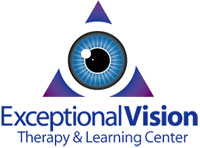Types Of Vision Problems Resulting From A Brain Injury
Our vision therapists specialize in neuro-optometric therapy and developmental optometry. We have special training and clinical experience in this area and are able to help those who have vision problems related to brain injury. Neuro-Optometrists understand how specific visual dysfunctions relate to the patient's symptoms and performance. A brain injury or the resulting condition such as the ones listed above can result in serious vision problems, which can have a devastating effect on one's ability to complete basic day-to-day tasks.
The damage can also be cumulative over time. Multiple concussions, even minor ones, can result in serious long-term complications. Our vision therapy practice in Palmetto Bay, Florida specializes in Neuro-Optometric Rehabilitation ― a specific Vision Therapy program for those who have suffered a brain injury. Using series of custom and personalized exercises, the brain can be retrained to accurately receive, process, and interpret visual signals again. Research has shown that recovery from vision problems is essential to recovery from any brain injury.
Three Main Types Of Vision Loss From Brain Injuries

Visual Field Loss

Double Vision & Brain Injury

Visual Balance Disorders
The vision problems highlighted above can be broken down into three main areas of vision problems.
Patients who acquire double vision (diplopia) after brain injuries can have a paralysis of a nerve controlling the eye muscle, gaze restrictions from the mechanical stress of trauma or decreased eye teaming ability. Often prisms, lenses and/or vision therapy/rehabilitation can be used to improve a patient’s eye teaming ability by improving their compensating vergences (ability to turn eyes in or out). Worst case scenarios where patients cannot improve their eye teaming ability, occlusion is used to suppress one of the images.
In visual field defects, patients are blind in certain field of views. Often, they can use prisms to shift the image in the affected field of view to scan the target. In vision therapy or rehabilitation, the patient can be taught how to scan that image and then shift their central vision to view it in more detail.
Brain injury patients can also have a visual balance disorder. An example of such is Visual Midline Shift Syndrome (VMSS). This can cause brain injury patients to have difficulty with eye tracking skills (oculomotor dysfunction). Difficulty controlling their eye fixation, pursuits (smooth eye movements) and/or saccades (jump eye movements) are often present. Lenses, prisms and vision therapy/rehabilitation can be used to alleviate symptoms.
Your Developmental Optometrist utilizing Vision Therapy techniques can help with each of these Vision Loss problems:
At Exceptional Vision, our Developmental and Neuro-Optometric Rehabilitation Optometrist provides Vision Therapy in Miami FL, which can greatly help in the rehabilitative process of the brain injury patient. If you or someone you know has had a brain injury and is experiencing visual discomfort, call us to make an appointment for a developmental eye exam. We will assess the visual skills discussed above and, if needed, create a vision therapy/rehabilitation program to improve the visual discomfort.
If you like this page, you may also be interested in our page on Vision Therapy for ADD and ADHD.

